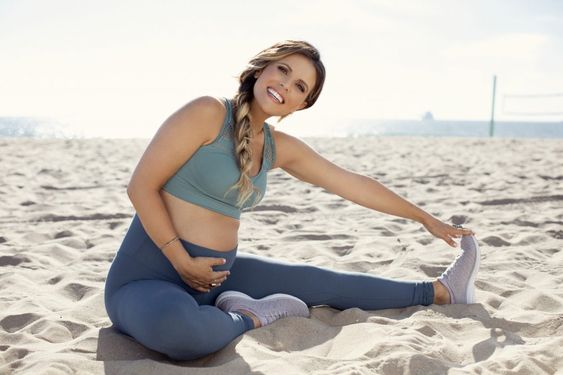
The Eight Things You Need to Know About Pregnancy Workouts
Exercising has many benefits, however for expectant mothers it can be difficult to know exactly how much is right and if what you are doing is safe for both you and the baby. Fortunately, we have worked with Dr Nagete Boukhezra, General Practitioner at London Doctors Clinic, who is here to break down everything you need to know about working out while pregnant.
1. It can improve your pregnancy experience
Not only is exercise beneficial for improving your fitness level, it can also improve your mood due to the release of endorphins, as well as your overall pregnancy experience. Exercise can help to improve your gestational weight controland, for those that experience gestational diabetes, reduce the need for insulin.
It will also strengthen the pelvic floor, helping to reduce urinary incontinence, and prevents lower back and joint pain. This all combined will also help you to get a better night’s sleep.
2. Aim for 150 minutes a week
It is recommended that pregnant women should aim for around 150 minutes of moderate exercise per week, providing you have no medical condition to prevent it. If you were active before the pregnancy, then you should be able to maintain your activity level. Expectant mothers that weren’t previously active should consider upping their activity levels gradually – but always consult your GP or midwife first.
3. Avoid anything high impact, high altitude or high temperature
Any exercises that are high impact or pose a risk of falling, should be avoided to prevent the risk of injury to you and baby. Exercising at high altitude can lead to reduced oxygen supply so best to avoid this too. Similarly, diving poses a risk due to decompression sickness which could put additional stress on the baby and could lead to complications with the pregnancy.
Also, while a trip to the sauna might seem like a relaxing end to a workout, the high temperature can lead to dehydration so pregnant women should avoid them and make a conscious effort to stay hydrated.
4. Work that pelvic floor
Kegel exercises are really beneficial for building a strong pelvic floor, which helps to support your bladder, bowels and uterus. Both pregnancy and childbirth weaken your pelvic floor, meaning you are more susceptible to incontinence. Incontinence can come in a few forms:
– Stress Incontinence (involuntarily leaking drops of urine when coughing, sneezing or laughing)
– Urinary urge incontinence (Having a strong sudden surge to urinate, even after going to the toilet)
– Faecal incontinence (where you leak stool)
Fortunately, Kegel exercises are easy, completely harmlessand can be discretely, they work by contracting and relaxing your pelvic floor muscles. For the best results, Kegel exercises should be done during and continued after pregnancy.
5. Keep workouts low impact

Yoga and Pilates are low impact exercises which help to build and maintain muscle strength without putting lots of pressure on your joints. They also offer the benefit of teaching breathing and relaxation techniques which will help to reduce stress and improve sleep. Though you should make sure you do not spend too much time laying on your back during these exercises. This is because the entire weight of the uterus on your back, intestines and your vena cava, the main vein which (the main vein that carries blood from your lower body to your heart).
Swimming and other water exercises are also worth considering as they boost fitness by strengthening the heart and increasing lung capacity while putting little strain on your joints.
6. Walk it out

It is recommended that pregnant women walk for at least 30 minutes every day to keep active. This will boost fitness and improve circulation around the body all whilst having minimal impact on your joints.
7. Don’t over exert yourself
Pregnancy in itself puts lots of pressure on your body so overexertion through exercise can be dangerous for both you and the baby. As a rule, you should always be able to talk when exercising and you are not working yourself to exhaustion. If something doesn’t feel quite right when you are exercising, you feel sick, dizzy, have any discomfort or are experiencing contractions, stop immediately and seek medical attention.
8. Speak with your doctor
If you have any questions about the exercises that you can or should do, make sure you consult your GP or midwife.













































